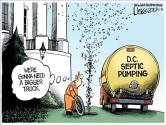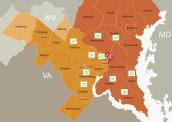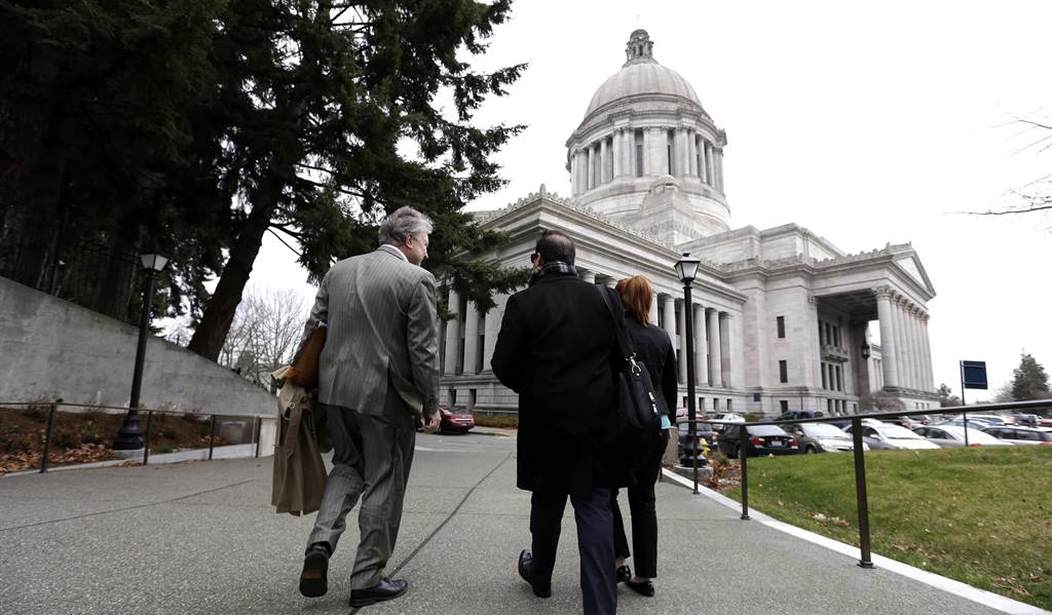At the risk of oversimplifying, there are two major challenges to overcome when you’re a pro-freedom policy wonk in Washington.
The first challenge is getting people to connect the dots.
They may understand that the job market is weak and they may understand that redistribution programs are overly generous, but can you help them understand that the job market is weak in part becauseredistribution programs make work relatively unattractive?
 They may understand that the federal government is bloated and they may understand that there’s a big problem with corruption in Washington, but can you make them understand that there’s a lot of sleaze in Washington because government has so much power?
They may understand that the federal government is bloated and they may understand that there’s a big problem with corruption in Washington, but can you make them understand that there’s a lot of sleaze in Washington because government has so much power?
They may understand that the corporate tax burden is very high and they may understand that American companies sometimes aren’t very competitive, but can you help them understand that it’s difficult for firms to compete because they’re saddled with high tax rates?
The second challenge is getting policy makers to do the right thing when doing the wrong thing means more money and power for the political class.
Let’s consider the problem of corruption. And I don’t just mean illegal corruption, though there’s plenty of that in Washington. I’m talking about the everyday graft and sleaze that is perfectly legal, such as when dozens of politicians are caught red-handed supporting legislation that would line their pockets.
Using fiscal policy as an example, how do you get these people to do the right thing? They may understand – at least conceptually – that the United States faces a huge long-run fiscal nightmare because of an ever-growing burden of government spending.  They may even vote for theRyan budget, which theoretically commits them to supporting meaningful entitlement reform.
They may even vote for theRyan budget, which theoretically commits them to supporting meaningful entitlement reform.
Recommended
But the real fight occurs when you ask them to support policies – such as sequestration – thatactually slow the growth of Leviathan and require them to say no to lobbyists. Particularly when many lobbyists are their former colleagues and staffers!
To get a sense of what I mean, check out these excerpts from a book review in The Economist.
Washington has always had a permanent establishment of politicians, lobbyists and journalists. But this class has exploded in size in recent decades, and has become more introspective and self-serving.
…The lobbying industry has spent billions greasing the revolving door: in 2009 alone, special interests spent $3.47 billion lobbying the federal government. In 1974 3% of retiring policymakers became lobbyists. Now 50% of senators and 42% of congressmen do. …a “change election” that was supposed to sweep aside the old order and create a politics fit for the 21st century. …But the Washington machine soon took over. …once in the capital, these same figures cashed in on their public service by getting lucrative jobs as lobbyists, bankers or talking heads. David Plouffe, an adviser to the president, joined the jackals at Bloomberg television. Mr Orszag went to Citigroup. Meanwhile, the city’s politicos grew richer while the rest of the country was mired in recession. Washington now has a higher income per person than Silicon Valley.
The final sentence of that passage is very depressing. Or it should be. Do we really want a society where becoming part of the political machine is the easiest path to wealth? Are there any nations that have prospered using that model?
Or is that a symptom of a country on a downward slide?
I don’t know the answer, but it’s very depressing to look at this map and see that 10 of the 15 richest counties in the nation are part of the Washington metropolitan area.
We now have something akin to an imperial capital being supported by coerced tribute from the serfs in the outer provinces.
And as this video explains, all of this unearned wealth is made possible by a bloated budget, a Byzantine tax code, and a maze of complicated regulations.
P.S. The latest example of Washington graft is the way that Obamacare has turned into a get-rich-quick scheme for DC insiders.
P.P.S. Down in Louisiana, Boudreaux and Thibodeaux have a rather sensible view about political corruption.

























Join the conversation as a VIP Member